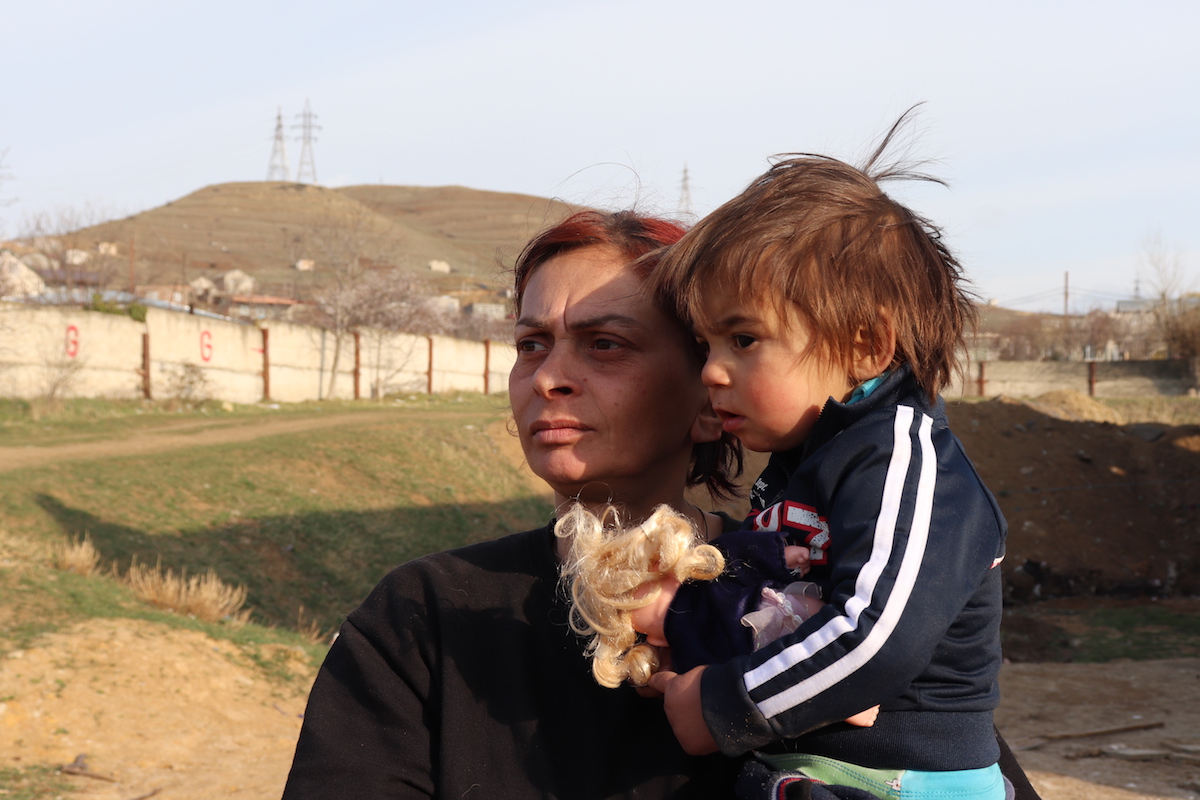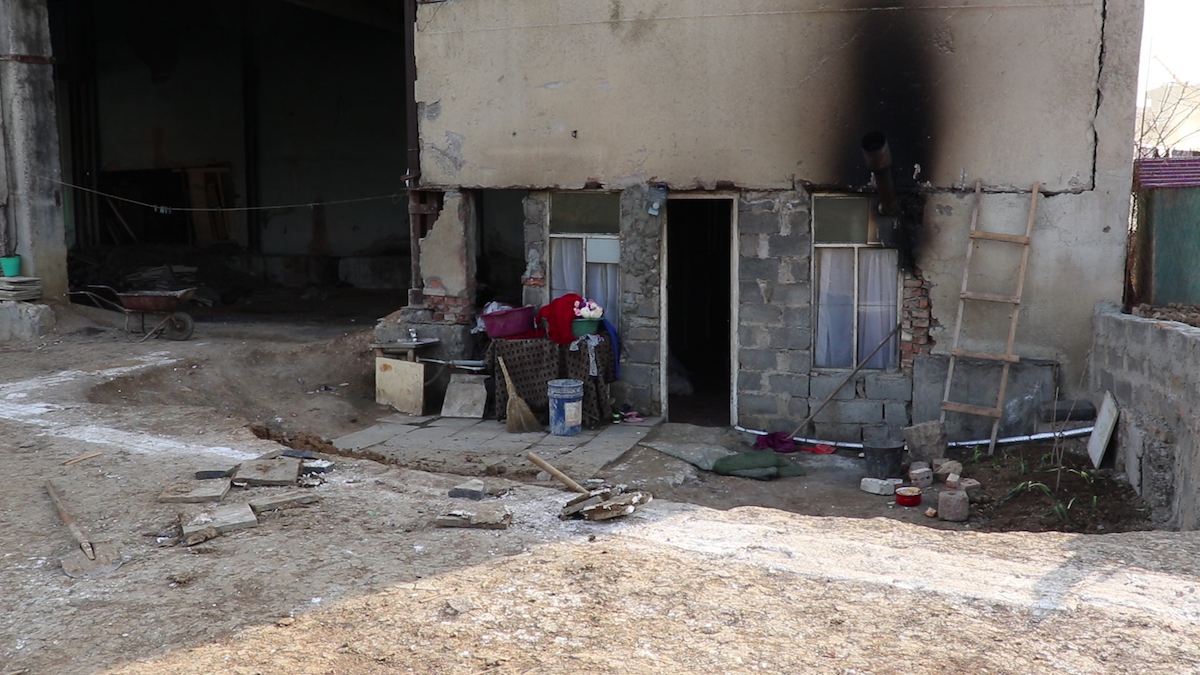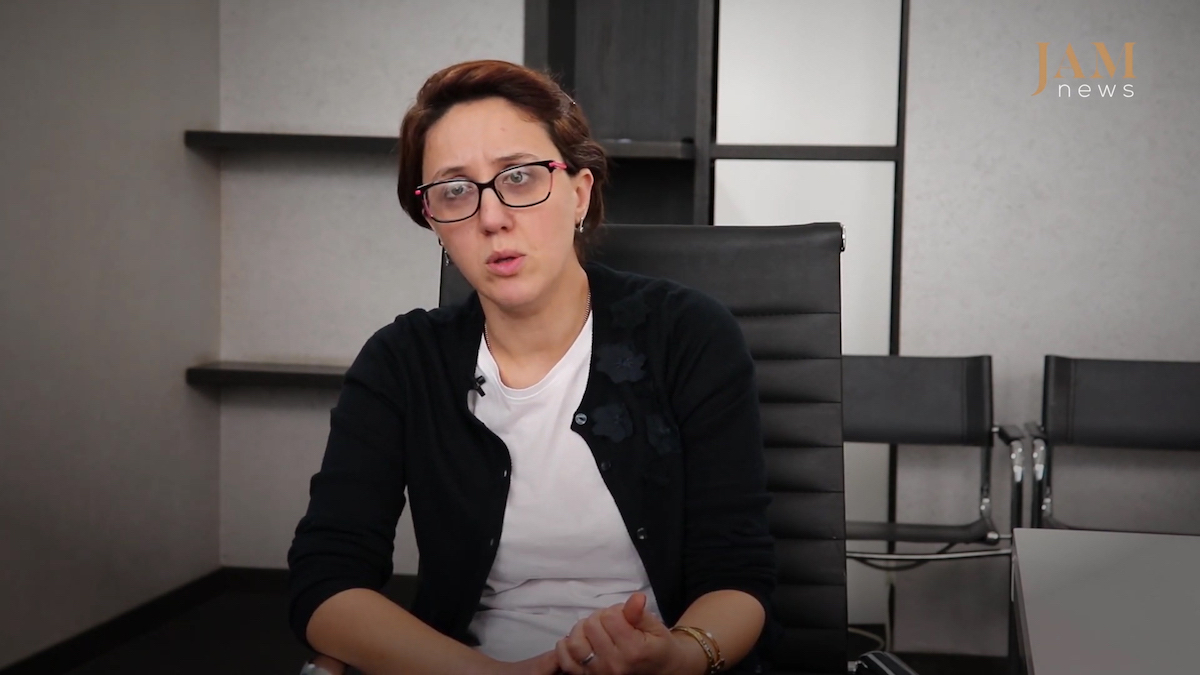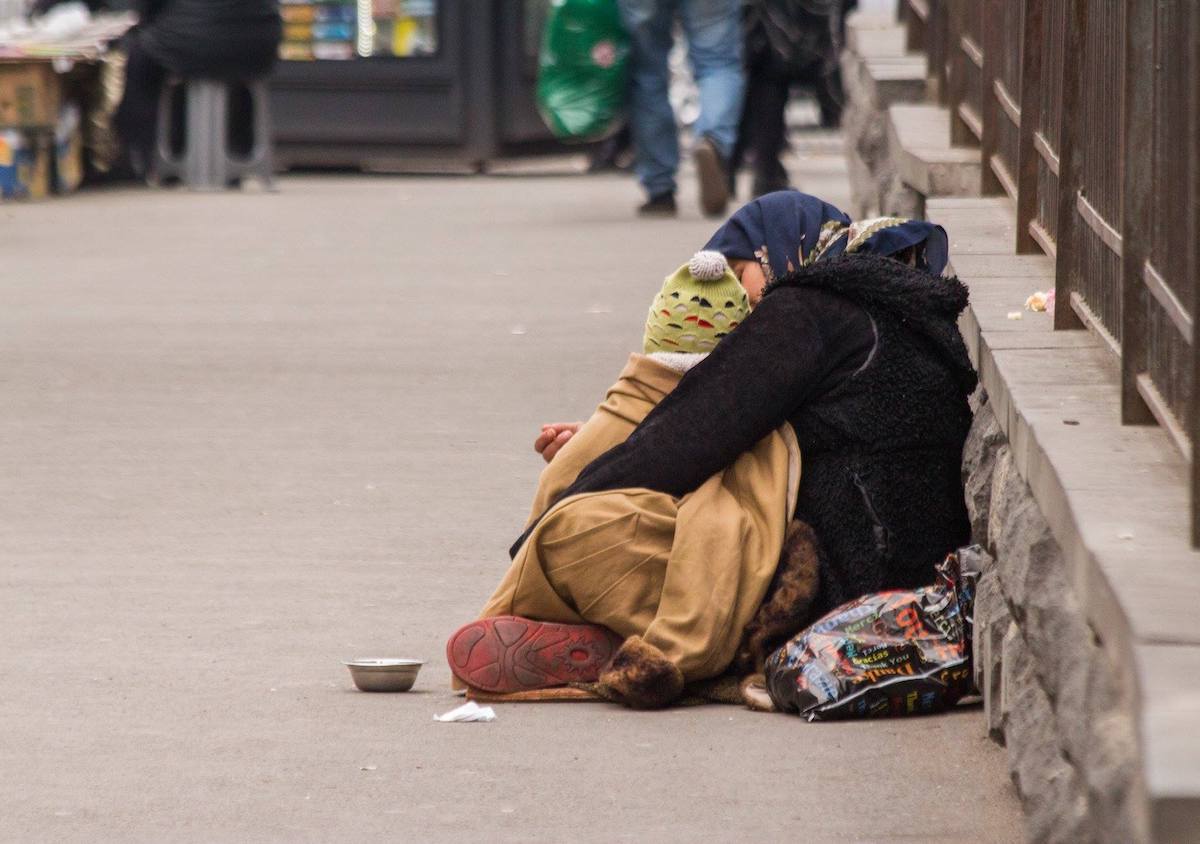Georgia: the children left outside the classroom
Six-year-old Anano repeats the letters of the Georgian alphabet which her mother taught her. In September she was supposed to go to first grade, but her mother says the family didn’t have enough money to send her.
A year ago, 13-year-old Achi dropped out of school. He says it was great to study and play with his classmates. He dreams of being able to go back, to study and to play football with his friends. Nowadays he basically does not leave the house – he helps his mother as the eldest son, and has little time to speak with his peers.
Anano and Achi, their three brothers and sisters and mother, live together in the village TEVZ (Tbilisi Electric Locomotive Plant) in an abandoned building. They have neither gas nor electricity. Thanks to the help of a charity foundation, they put up a roof in two of the rooms and installed a wood-burning stove. This is the only way for them to get warm, but the tiny area that they occupy often becomes filled with smoke and it becomes difficult to breathe.
• Six facts dispelling the ‘cult of children’ in Georgia
• Children born out of wedlock in Azerbaijan
• Georgian social workers: the system is in a state of crisis
“Show me a mother who does not want her child to study,” says 41-year-old Nino Kapanadze. She is trying to raise her children on her own.
She says that she rented a home for several years, but she had no work, and she only got 250 GEL per month [about $90] in social security payouts, given how many children she has. The money was not enough to rent a home, and the owner evicted them and they ended up on the street.

“I couldn’t pay, so he threw everything out – furniture, clothes, the children’s documents … When I went to apply to get the status of socially vulnerable, I needed to get some documents first. But I don’t have money or time for this,” says Nino.
She says that she applied for help to the Isani gamgeoba (district administration). They paid for housing for a month, but then they had to move to an abandoned building.
When she asked for help, she did not hide the fact that her children weren’t attending school. The school was aware of the family’s plight, as it had been obliged to find out why the child had stopped attending classes and to notify social services. The school got hold of them, and asked why Achi hadn’t been coming to class. Nino told them directly that he didn’t have any clothes to go to school in.

Despite the fact that according to the legislation of Georgia, children have the right to basic education and in this matter no obstacles are acceptable, the state in this case showed up only once in the form of a single visit by a social worker. As Nino says, the caseworker took a look around, could not do much to help and has not been seen since.
She wants her children to return to school and continue their studies.
“We live for weeks at a time on tea. We sometimes go to bed without a meal, but the children won’t go outside to beg. They’re worried that they can’t go to school … If I could, I’d get my hands on a couple of shoes, get their documents and gladly return them to school,” she says.
What is the state doing?
In Georgia, the right to education is guaranteed by the constitution. Primary and basic education in Georgia is mandatory. According to the law on general education, the state must ensure that every student has the opportunity to study at the school closest to their home. The law also states that if all this cannot be achieved through standard financing, the state should provide such a student with an additional voucher.
The Ministry of Education of Georgia does not have accurate data on the number of children who do not receive compulsory education.
The ministry says there might be about 30,000 such children.
The total number of pupils enrolled in all schools for 2018-2019 was 584 000. That is, about 5 per cent of Georgian children are not enrolled in school.
The state does not have an answer to the question of why children don’t go to school – they say in order to clarify this issue, it is necessary first to be able to identify such children.
However, the ministry says, based on experience, mainly children from poor families, homeless people, working children and children with disabilities, as well as members of ethnic minorities, are left without an education.
To find out why children do not go to school, the Ministry of Education first wants to get accurate statistics. The ministry said that for many years, the law on the protection of personal data prevented them from collecting this information. Now a programme has been created which, with the participation of representatives from other ministries, will help to find and identify children who are not able to go to school.

“It will be possible to know where this or that child is, and thus we will be able to ask the parents why the child does not attend classes at school. This may require the creation of additional services if it turns out that there are some barriers that prevent the child from attending school. Such a state of affairs will force important services, programmes and projects to develop within the system,” says Ekaterina Dgebuadze, head of the Department of Inclusive Development of the Ministry of Education.
At this stage, the ministry has only data on children who have been registered at least once in the education system. If such a child later leaves school, the school is obliged to contact the parents to find out the reasons for the incident, and, if necessary, to alert social services.
According to the law, parents or guardians can be held accountable should a child’s rights be violated. This issue is discussed individually based on the decisions of social service employees.
Dgebuadze says that identifying children’s rights violations makes it possible to inform the relevant department about the situation and to bring parents who violate the rights of children to receive education, to justice.
An opportunity for underprivileged children
A Second Shot at Education is the name of a state programme which allows children who did not get an education to catch up with their peers. They are taught vital skills and provided with the minimum necessary knowledge so that they can communicate with their peers.
This programme is implemented in day centres and, above all, also contains cultural and sports components. Moreover, meetings with students and their parents are held as part of the programme, and teachers and directors are trained.
Programme coordinator Lela Gaprindashvili says that the most difficult part is the rehabilitation and socialization of children with mental problems, antisocial behavior, as well as victims of sexual violence.
Gaprindashvili also notes the important role of parents:
“Often they do not realize that they are responsible for their children … Without specialized one-on-one work with parents or guardians, the support of children would only be temporary and episodic, and real changes will be very difficult to achieve.”
Gaprindashvili says that during the existence of the programme, about 350 children have benefited, but how many of them returned to school is hard to say.
Twelve-year-old Giorgi (name changed) really wanted to study. He managed to return to school with the help of the day centre. But, after a few days, he began to skip classes again. Giorgi told the social worker that when classmates eat during break, food waste or garbage was thrown at his desk and he was ridiculed. Giorgi’s desire to go to school thus disappeared.
Another 12-year-old boy belonging to an ethnic-minority family also returned to school. Sandro (name has been changed) initially liked the warm welcome of his classmates. But after a scolding from a teacher for the fact that he could not read or write, Sandro withdrew into himself, and began to have fights with his classmates.
His parents then asked that Sandro be exempted from class. The social worker invited them to the centre where they were given a party with a cake, music and balloons – and the situation was resolved. Later, a social worker noticed that Sandro was dancing, and classmates applauded him. Today, the boy wants to go back to school again.
These stories were told to us by Irina Tsereteli, a social services employee. She admits that she will never forget the story of Sandro, and says the way he danced will always remain in her memory.
Irina herself often goes to solve problems with documents instead of parents.
At the day centre she teaches children necessary skills, teaches them how to sit at a desk, explains what school bells mean, and personally shows the children the schools. She observes that many of them go to school with great joy. She notes that the “graduates” of the centres may be victims of harassment in school due to the fact that such children often have no idea about hygiene, have problems with socialization, dress out of season and so on.
The social worker says the problem is not only in school. She says that often the reason that children stay out of school is the indifference and carelessness of their parents. She had one such incident where a child did not go to school just because their parents “did not get it”.
“They know perfectly well that with this attitude they were violating the rights of their children, but they say: ‘What am I to do? Forcibly throw him out of the house? He himself does not want to go to school.’
“Or they refer to the fact that there are no shoes for their children or clothes. Sometimes it is true. A child at school can be laughed at if he is dressed out of season,” says Irina.

What’s the solution?
Experts find it difficult to answer this question.
However, they agree that in order for a child to return to school, the child must first be prepared for it. UN Children’s Fund (UNICEF) employee Maya Kuparadze believes that it is necessary to strengthen day-care centres, as well as develop new programmes.
“It is necessary to create a positive environment through which a child’s education and development can be taken care of. Otherwise, he will have neither knowledge nor social skills, and it is likely that he will easily fall under the influence of less desirable role models. At a certain age, a child must be both under the care of parents and in the educational space – this should be ensured by the state,” says the head of the UNICEF education programme.
Education expert Shalva Tabatadze says that, despite the fact that the state provides access to education, more active work is needed to create a mechanism for returning children to schools.
“We need a more active response to such cases, and this should not depend only on the wishes of the parents or the children themselves. It is necessary to work with parents so that they themselves are convinced that the child must return to school,” says Tabatadze.
What action the Ministry of Education will take is not yet known.
The ministry says that a programme will hopefully by prepared by September, with the help of which the state may receive comprehensive data on all children who do not attend school, and, perhaps, after that, will start working to resolve the problem.
With the support of Mediaset.



















